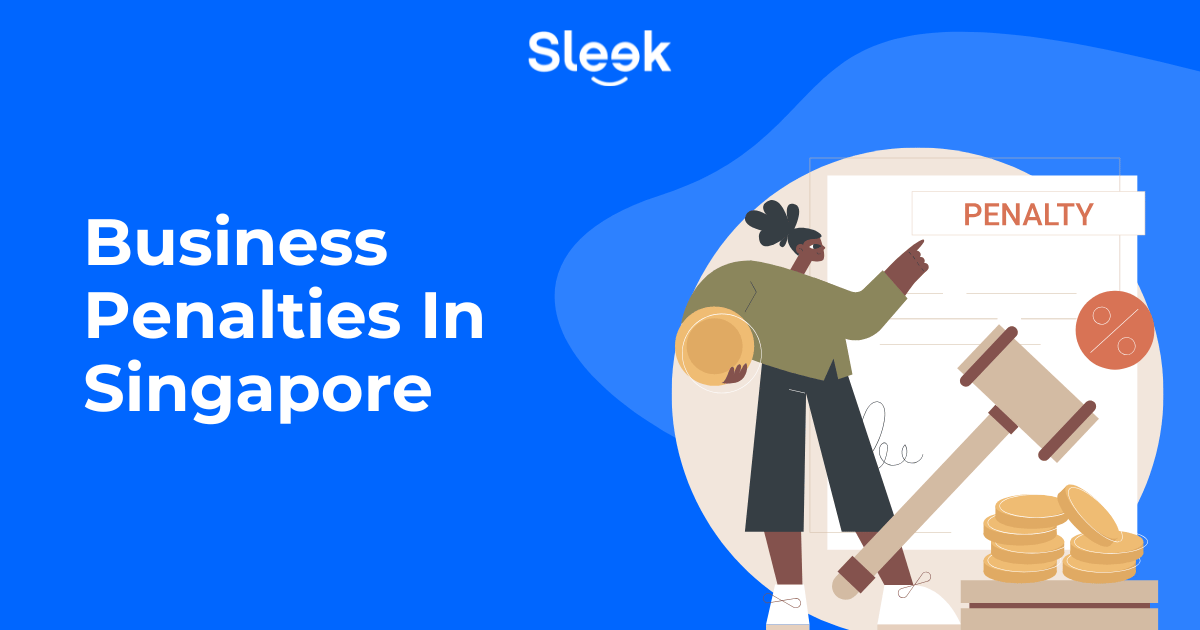Guide on Dividends in Singapore
5 minute read
Dividends are payments released by corporations to their shareholders, generally as a way to distribute profits as a reward for their investment in the company. The company’s board of directors decides on and manages dividends, but it is the shareholders that must approve them through their voting rights.
In Singapore, dividends can be paid as shares of stock or other property, but cash dividends are still the most common. Regardless of the dividend type, they remain a great way to provide stable income and morale among shareholders.
Overview:
- Can you pay dividends?
- Types of dividend -Interim and Final
- Is dividend income taxable in Singapore?
- Is foreign dividend income taxable in Singapore?
- How are dividends in Singapore calculated?
- How are dividends reflected in the company’s management accounts?
- How can you declare dividends and what is the necessary paperwork?
- What is the limit of dividends to be paid?
- How often are dividends paid?
- Dividend calculator Singapore
- Dividend tax rate Singapore
- Interim dividend Singapore
- FAQ
- Next steps
Can you pay dividends?
Yes, you can. As already stated, dividends are paid to the company’s shareholders. However, it is important to note that you can distribute dividends only out of the business’s profits.
Therefore, a company should declare dividends only when its decision-makers are sure that it has profits and that it can make dividend payments. Otherwise, board members may face legal consequences.
Types of dividends – Interim and Final
There are two main types of dividends a business can pay – interim and final.
Interim dividends
An interim dividend is announced by the company’s board before annual profit or loss is ascertained and any time between the two company’s annual general meetings. It is paid out of retained earnings in the profits and loss accounts or out of the profits of the accounting year in which the dividend is to be announced.
Final dividends
On the other hand, a final dividend is announced after the financial statement for the fiscal year has been reported during the company’s annual general meeting. In this case, the financial position and profitability position needs to be ascertained.
Interim vs final dividends in Singapore
| Final dividends | Interim dividends |
| Can only be announced once a year with approval from shareholders. | Can be announced at any time without approval. |
Is dividend income taxable in Singapore?
When it comes to Singapore dividend taxes, there are non-taxable and taxable dividends.
Non-taxable dividends include:
- Most dividends paid on or following January 1 2008, by a Singapore resident company under the one-tier corporate tax system
- Foreign dividends received on or following January 1 2004, by resident individuals
- Income distribution from REITs (Real Estate Investment Trusts)
On the other hand, the following Singapore dividends are taxable:
- Dividends that are paid by co-operatives
- Foreign-sourced dividends derived by individuals through a Singapore-based partnership
- Income distribution from REITs (Real Estate Investment Trusts) derived by individuals through Singapore-based partnerships, or from carrying on a trade, profession, or business in REITs
Are foreign dividends income taxable in Singapore?
In some cases, foreign dividends are taxable. For example, if they are derived by individuals through a partnership in Singapore. However, in this case, conditions may apply. See Tax Exemption for Foreign-Sourced Income for more information.
If, on the other hand, a resident individual receives foreign-sourced dividends, they may be taxable if they are not received through a Singapore-based partnership.
How are dividends in Singapore calculated?
There are a few steps involved in calculating dividends:
- Determine how many shares of stock you hold.
- Determine the dividends paid per share (DPS).
- Multiply the DPS by the number of shares.
Furthermore, if you want to find the dividend yield in Singapore, here is what you need to do:
- Determine the share price of the stock you are analyzing
- Then, determine the DPS of the stock
- Next, divide the DPS by the share price
- Finally, use dividend yields to compare opportunities for investment
How are dividends reflected in the company’s management accounts?
Stock dividends don’t affect asset changes of the balance, but they do affect the equity side by reallocating part of the retained earnings to the common stock account.
Therefore, if a business pays stock dividends, the company’s retained earnings are reduced and the common stock account is increased.
The cash dividend primarily affects the cash and shareholder’s equity accounts. It is important to keep in mind that there is no separate balance sheet account for dividends after they have been paid.
Still, after the dividend is declared and before the payment is made, the business records a liability to its shareholders in the dividend payable account.
How can you declare dividends and what is the necessary paperwork?
In general, directors will recommend a certain rate to be paid as dividends. Then, this is voted on and approved by the company’s shareholders in the annual general meeting (AGM). This is known as final dividends, as stated above.
As a director, you may also pay interim dividends if this is justified by the company’s profits. These dividends are paid before the AGM, accompanying the company’s interim financial statements.
When it comes to the necessary documentation for declaring Sg dividends, make sure you have the following documents:
- Dividend vouchers
- Board meeting minutes (including date, location, who was present, number of dividends to be paid per share, and the fact that the decision has been made)
- Dividend register
- Resolution to pay an interim dividend or proposed final dividend
- Shareholders’ approval
- Warrants issued to each shareholder
What is the limit of dividends to be paid?
There is no limit to dividends per se. However, you need to pay attention to how much profit your company has made. In other words, you can distribute all profit remaining after paying taxes and settling losses.
Keep in mind that, if your company declares and pays dividends but it hasn’t made any profits, the directors may be found guilty of a criminal offense.
How often are dividends paid?
Most dividends are paid four times per year on a quarterly basis. However, some companies distribute dividends twice a year, once a year, or even monthly.
In other words, there are no set rules as to how often companies should pay dividends. Rather, companies have the freedom to set their own policies regarding dividend payments.
Dividend tax rate in Singapore
The flat corporate tax rate in Singapore is 17%. However, to prevent double taxation, corporations are not taxed again when distributing dividends to their shareholders, and dividends are tax-exempt for shareholders.
Interim dividends in Singapore
The board of directors announces an interim dividend before the annual profit or loss is determined and at any time between the company’s annual public meetings. The dividend is paid from retained earnings in the profit-and-loss accounts or from the profits of the accounting year in which the dividend is to be declared.
More on Interim dividends in the Singapore Companies Act
Section 403 of the Singapore Companies Act stipulates that a business may only declare and pay dividends from its profits. If the corporation has incurred a loss, it is unable to declare dividends. If the company still pays dividends, this could result in severe legal repercussions for the board of directors of the corporation.
FAQ
Here are some frequently asked questions about dividends in Singapore.
How are dividends paid in Singapore?
The board of directors of a corporation determines and manages dividends, but shareholders must approve them through their voting rights. In Singapore, dividends may be paid in the form of shares of stock or other property, but cash dividends remain the norm.
Is dividend income taxable in Singapore?
In Singapore’s single-tier system, shareholders are not required to pay the profit tax submitted by firms. Consequently, the majority of dividend income is not taxable, as it is covered by Singapore’s tax benefits.
How much are dividends taxed in Singapore?
It’s important to know that the tax rate on dividend distribution amounts to 0%.
Do you declare dividends on tax returns in Singapore?
Individuals and businesses in Singapore can declare dividend income on their tax returns (under “Other income”). This statement is not required if the corporation states that it will provide IRAS with dividend information.
Next steps
Dividends in Singapore are not quite the easiest feat for board members. There are quite a few factors you need to consider, but if you approach the issue carefully and with the appropriate information, you will be able to master it sooner than you may think.
You might be interested in reading about:









